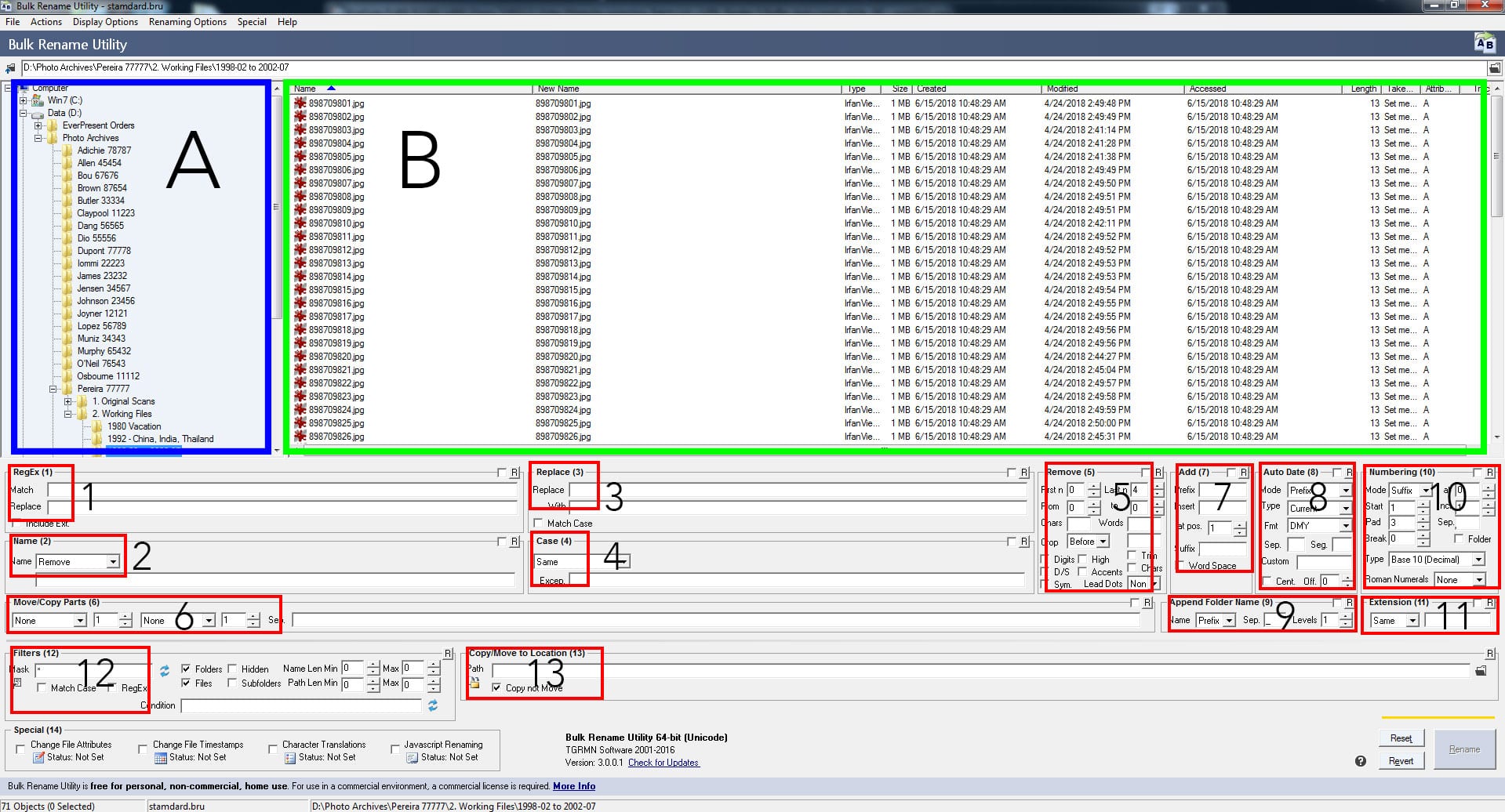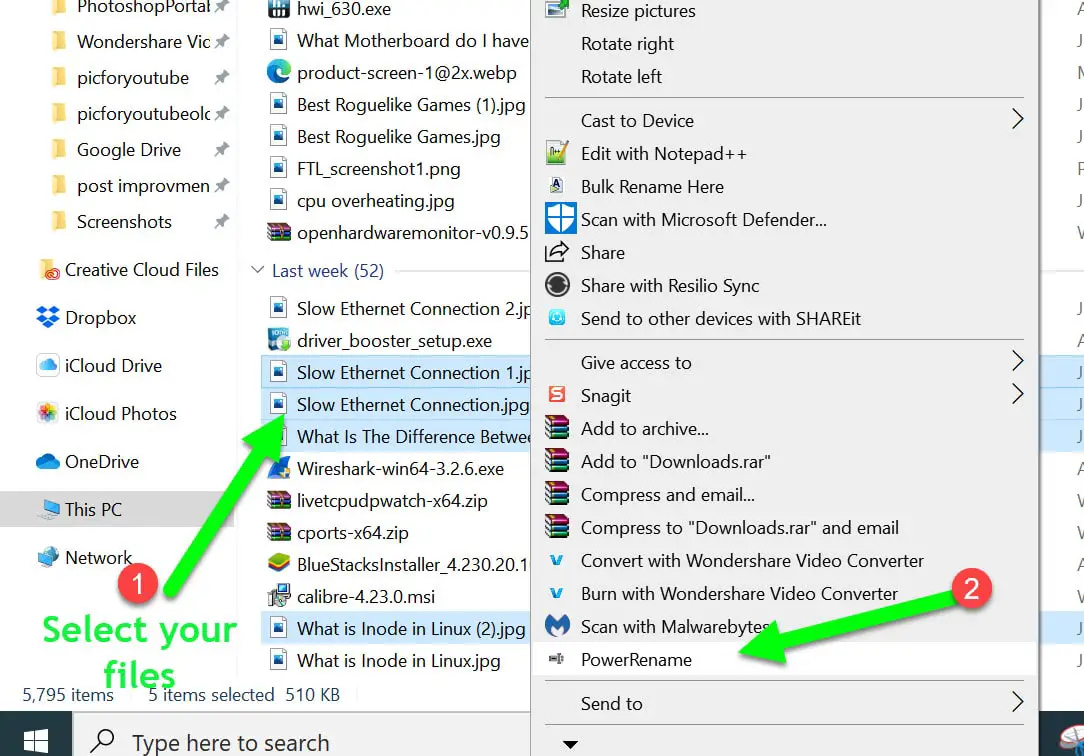
- #Bulk rename utility from list how to
- #Bulk rename utility from list install
- #Bulk rename utility from list software
To remove all blank spaces from file names, execute this command.To capitalize the first letter of each file name, use the following command.To change the extension of a bunch of files, use the following syntax.This command will rename uppercase files to lowercase.The -v (verbose) option will print the names of files that have been successfully renamed. This helps you avoid any undesirable changes. The -n option will show you what changes rename is going to make, without actually making the changes. There are a few options you can use with rename. You can always specify the path to other directories if you wish. These commands assume that the files you wish to rename are in your present working directory. Here we’ve compiled some of the most common scenarios that you would need to rename multiple files at once. If not, don’t worry, we have some examples below that will help you get the hang of it.

If you’re already familiar with this syntax, then rename will be very easy to use.

The rename command accepts perl expression to do the actual renaming.
#Bulk rename utility from list install
To install rename on Arch Linux and Manjaro: To install rename on CentOS, Fedora, AlmaLinux, and Red Hat: To install rename on Ubuntu, Debian, and Linux Mint: Just in case it’s not already installed, you can use the appropriate command below to install it through your system’s package manager. Your Linux distro may already have rename installed by default. Check out some of the other methods below to see some more convenient options that require installation. However, as we’ve seen in these examples, it can be rather complex to do something simple like rename a few files.
#Bulk rename utility from list software
The advantage of this method is that we don’t need any extra Linux software – we just use the native mv utility, and sometimes coupled with ls, find, or xargs. $ for i in `ls *.txt` do mv "$i" "`echo $i | tr '' ''`" done txt in the present directory to have lowercase letters only, this command will do the job. This command will accept standard input from the ls command, then use xargs to append “_backup” to all files that end in the. We can also use xargs to do the same thing.$ for i in $( ls *.txt ) do mv $i $_backup \


txt file extension to all files in your present working directory. Take a look at some of the examples below to see some common uses with this method. The tool is dependent on the file API, so too low version of the browser may not support the tool to run properly, recommended to use Chrome browser to use this tool.Ĭopyright © 2022 Renaming.Renaming multiple files with the mv command is easier if you know a little bit of Bash scripting. This rename tool mainly uses the file processing related API of modern browsers to read files, so the data is only processed in your browser, and will not be uploaded to the network server, so you do not need to worry about data leakage, please rest assured. Single support thousands or even tens of thousands of small file batch processing, the actual threshold depends on your device performance and browser, too many files unified will make the file packaging time is too long, as long as the browser does not crash, you can complete the renaming, please wait patiently. Large files may cause file packaging time to take too long, or even browser crash, depending on your machine and browser Settings. How much file renaming is supported by the tool?ĭue to the limitations of browser memory, the browser cannot read large files, so the tool is suitable for batch renaming small files. After the renaming is completed, all the files will be packed and downloaded to local. A simple setting can complete the renaming of the file. Simply drag the file into the page and select the different rename function TAB according to your needs.
#Bulk rename utility from list how to
FAQs How to use the online bulk file renaming tool?


 0 kommentar(er)
0 kommentar(er)
